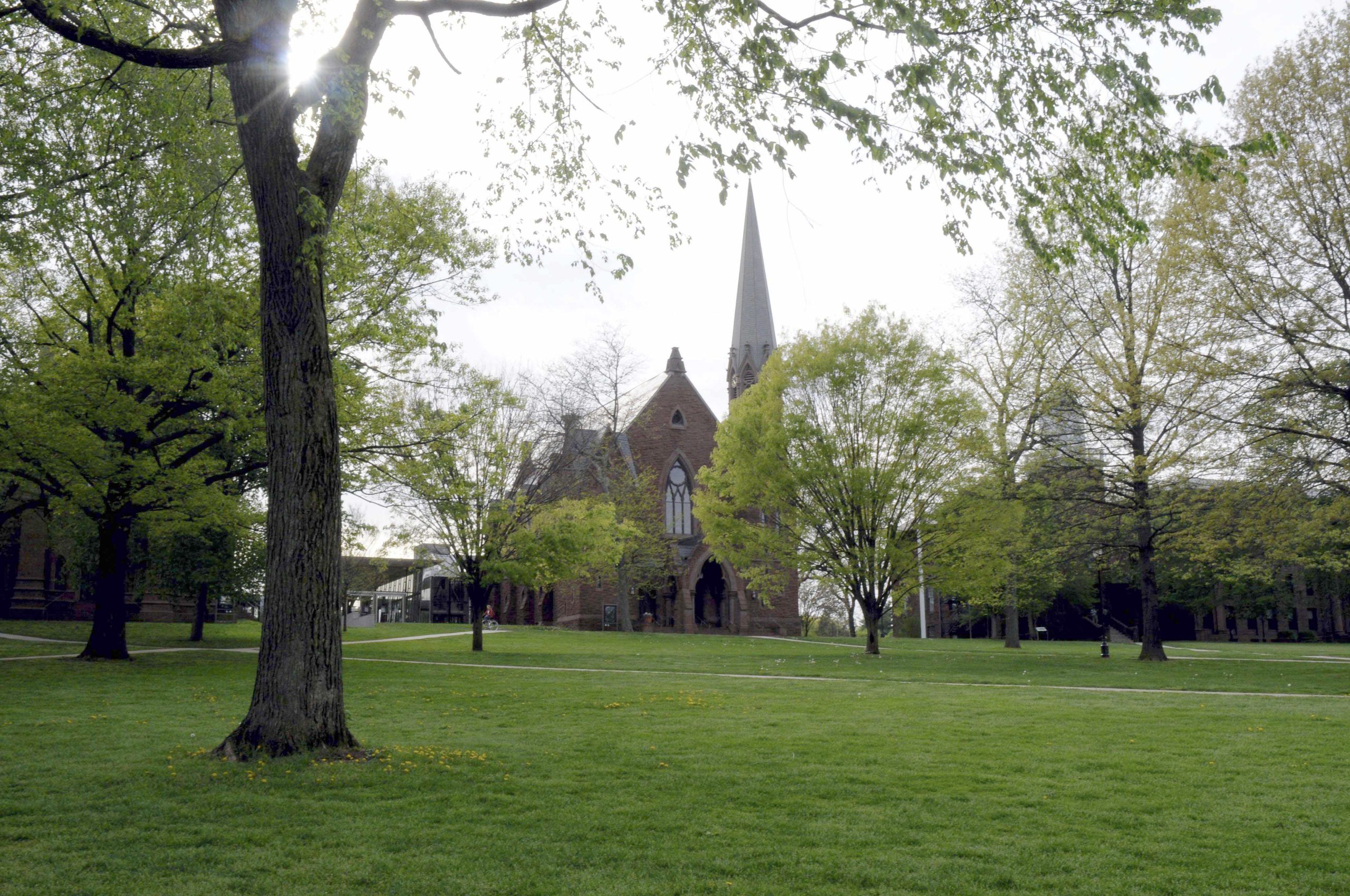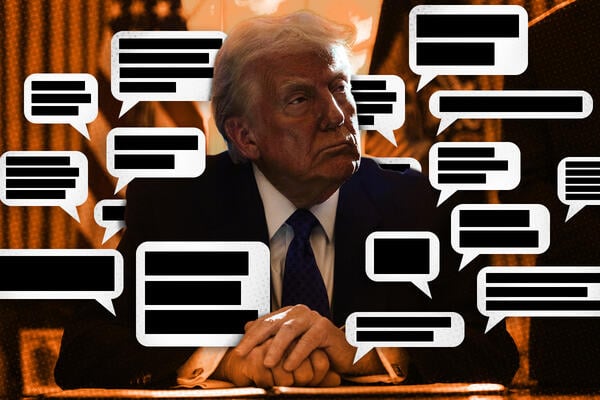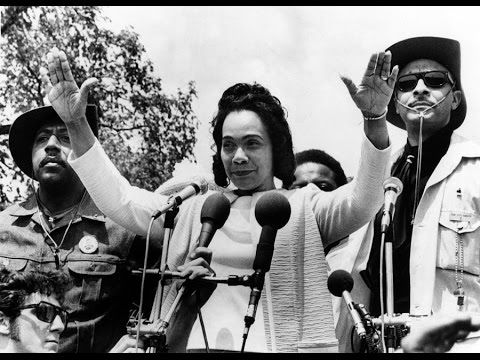Tag: silent
-

The silent hero of modern learning
Key points:
Education is undergoing a profound digital transformation. From immersive AR/VR learning in science labs to hybrid classrooms, real-time collaboration platforms, and remote learning at scale, how students learn and educators teach is changing rapidly. These modern, data-intensive applications require far more than basic connectivity. They demand high bandwidth, ultra-low latency, and rock-solid reliability across every corner of the campus.
In other words, the minimum requirement today is maximal connectivity. And this is where Optical LAN (OLAN) becomes a game changer.
The challenge with traditional LANs
Most schools and universities still rely on traditional copper-based local area networks (LANs). But these aging systems are increasingly unable to meet the demands of today’s digital education environments. Copper cabling comes with inherent speed and distance limitations, requiring rip-and-replace upgrades every 5 to 7 years to keep up with evolving needs.
To increase network capacity, institutions must replace in-wall cables, switches, and other infrastructure–an expensive, time-consuming and highly disruptive process. Traditional LANs also come with large physical footprints, high maintenance requirements, and significant energy consumption, all of which add to their total cost of ownership (TCO).
In a world that’s demanding smarter, faster, and greener networks, it’s clear that copper no longer makes the grade.
Built for the campus of the future
Optical LAN is a purpose-built solution for both in-campus and in-building connectivity, leveraging the superior performance of fiber optic infrastructure. It addresses the limitations of copper LANs head-on and offers significant improvements in scalability, energy efficiency and cost-effectiveness.
Here’s why it’s such a compelling option for education networks:
1. Massive capacity and seamless scalability
Fiber offers virtually unlimited bandwidth. Today’s OLAN systems can easily support speeds of 10G and 25G, with future-readiness for 50G and even 100G. And unlike copper networks, education IT managers and operators don’t need to replace the cabling to upgrade; they simply add new wavelengths (light signals) to increase speed or capacity. This means educational institutions can scale up without disruptive overhauls.
Better yet, fiber allows for differentiated quality of service on a single line. For example, a school can use a 1G wavelength to connect classrooms and dormitories, while allocating 10G bandwidth to high-performance labs. This flexibility is ideal for delivering customized connectivity across complex campus environments.
New School Safety Resources
2. Extended reach across the entire campus
One of the standout features of OLAN is its extended reach. Fiber can deliver high-speed connections over distances up to 20–30 km without needing signal boosters or additional switches. This makes it perfect for large campuses where buildings like lecture halls, research centers, dorms, and libraries are spread out over wide areas. In contrast, copper LANs typically max out at a few dozen meters, requiring more switches, patch panels and costly infrastructure.
With OLAN, a single centralized network can serve the entire campus, reducing complexity and improving performance.
3. Energy efficiency and sustainability
Sustainability is top-of-mind for many educational institutions, and OLAN is a clear winner here. Fiber technology is up to 8 times more energy-efficient than other wired or wireless options. It requires fewer active components, generates less heat and significantly reduces the need for cooling.
Studies show that OLAN uses up to 40 percent less power than traditional LAN systems. This translates into lower electricity bills and a reduced carbon footprint–important factors for schools pursuing green building certifications.
In fact, a BREEAM (Building Research Establishment Environmental Assessment Method) assessment conducted by ENCON found that deploying OLAN improved BREEAM scores by 7.7 percent, particularly in categories like management, energy, health and materials. For perspective, adding solar panels typically improves BREEAM scores by 5-8 percent.
4. Simpler, smarter architecture
Optical LAN significantly simplifies the network design. Instead of multiple layers of LAN switches and complex cabling, OLAN relies on a single centralized switch and slim, passive optical network terminals (ONTs). A single fiber cable can serve up to 128 endpoints, using a fraction of the physical space required by copper bundles.
This lean architecture means:
- Smaller cable trays and no heavy-duty racks
- Faster installation and easier maintenance
- Fewer points of failure and lower IT footprint
The result? A network that’s easier to manage, more reliable, and built to grow with an education institution’s needs.
5. Unmatched cost efficiency
While fiber was once seen as expensive, the economics have shifted. The Association for Passive Optical LAN (APOLAN) found that POL saved 40 percent of the cost for a four-story building in 2022. Even more, Optical LAN now delivers up to 50 percent lower TCO over a 5-year period compared to traditional LAN systems, according to multiple industry studies.
Cost savings are achieved through:
- Up to 70 percent less cabling
- Fewer switches and active components
- Reduced energy and cooling costs
- Longer lifecycle as fiber lasts more than 50 years
In essence, OLAN delivers more value for less money, which is a compelling equation for budget-conscious education institutions.
The future is fiber
With the rise of Wi-Fi 7 and ever-increasing demands on network infrastructure, even wireless connectivity depends on robust wired backhaul. Optical LAN ensures that Wi-Fi access points have the bandwidth they need to deliver high-speed, uninterrupted service.
And as educational institutions continue to adopt smart building technologies, video surveillance, IoT devices, and remote learning platforms, only fiber can keep up with the pace of change.
Optical LAN empowers educational institutions to build networks that are faster, greener, simpler, and future-proof. With growing expectations from students, faculty, and administrators, now is the perfect time to leave legacy limitations behind and invest in a fiber-powered future.
After all, why keep replacing copper every few years when operators can build it right once?
Latest posts by eSchool Media Contributors (see all) -

With higher education under siege, college presidents cannot afford to stay silent
Higher education is under siege from the Trump administration. Those opposing this siege and the administration’s attacks on democracy would do well to heed the wise advice of Benjamin Franklin given just prior to the signing of the Declaration of Independence in 1776: “We must all hang together, or most assuredly we shall all hang separately.”
This is particularly true right now for college and university presidents.
College presidents come from a tradition based on the importance of ideas, of fairness, of speaking the truth as they understand it, whatever the consequences. If they don’t speak out, what will later generations say when they look back at this dark, dark time?
The idea that Trump’s attacks on higher education are necessary to combat antisemitism is the thinnest of covers, and yet only a very few college presidents have been brave enough to call this what it is.
The president and those around him don’t care about antisemitism. Trump said people who chanted “Jews will not replace us” were “very fine people”; he dined with avowed antisemites like Nick Fuentes and Ye (Kanye West).
Marjorie Taylor Greene blamed the California wildfires of 2018 on space lasers paid for by Jewish bankers. Robert Kennedy claimed that Covid “targeted” white and Black people but spared Ashkenazi Jews and Chinese people. The Proud Boys pardoned by Trump for their part in the January 6 insurrection have routinely proclaimed their antisemitism; they include at least one member who has openly declared admiration for Adolf Hitler.
Fighting antisemitism? That was never the motive for the Trump administration’s attacks on colleges and universities. The motive was — and continues to be — to discipline and tame institutions of higher learning, to bring them to heel, to turn them into mouthpieces of a single ideology, to put an end to the free flow of ideas under the alleged need to combat “wokeism.”
Related: Interested in innovations in the field of higher education? Subscribe to our free biweeklyHigher Education newsletter.
Columbia University has been a prime target of the Trump administration’s financial threats. I’ve been a university provost. I’m not naïve about the tremendous damage the withholding of federal support can have on a school. But the fate of Columbia should be a cautionary tale for those who think keeping their heads down will help them survive. (The Hechinger Report is an independent, nonprofit, nonpartisan organization based at Teachers College, Columbia University.)
Columbia was more than conciliatory in responding to concerns of antisemitism. The administration suspended two student groups, Students for Justice in Palestine and Jewish Voice for Peace, for holding rallies that allegedly included “threatening rhetoric and intimidation.”
They suspended four students in connection with an event featuring speakers who “support terrorism and promote violence.”
They called in police to dismantle the encampment created to protest the War in Gaza. Over 100 protesters were arrested.
They created a Task Force on Antisemitism, and accepted its recommendations. They dismissed three deans for exchanging text messages that seemed to minimize Jewish students’ concerns and referenced antisemitic tropes.
President Minouche Shafik resigned after little more than a year in office. (Last week, the university’s interim president, Katrina Armstrong, also resigned.) In September 2024, the ADL reports, the university went so far as to introduce “new policies prohibiting the use of terms like ‘Zionist’ when employed to target Jews or Israelis.”
None of this prevented the Trump administration from cancelling $400 million worth of grants and contracts to Columbia — because responding to antisemitism was never the real impetus for the attack.
Related: Tracking Trump: His actions to dismantle the Education Department, and more
Was Marjorie Taylor Greene asked to renounce antisemitism as a condition for her leadership in Congress?
Was Robert Kennedy asked to renounce antisemitism in order to be nominated for a Cabinet position?
Were the Proud Boys asked to renounce antisemitism as a condition for their pardoning?
This is an attack on higher education as a whole, and it requires a collective defense. Columbia yesterday. Harvard today, your school tomorrow. College presidents cannot be silent as individual schools are attacked. They need to speak out as a group against each and every incursion.
They need to pledge to share resources, including financial resources, to resist these attacks; they should mount a joint legal resistance and a joint public response to an attack on any single institution.
These days, as many have observed, are much like the dark days of McCarthyism in the 1950s. In retrospect, we wonder why it took so long for so many to speak up.
Today we celebrate those who had the moral strength to stand up right then and say, “No. This isn’t right, and I won’t be part of it.”
The politicians of the Republican Party have made it clear they won’t do that, though most of them understand that Trumpism is attacking the very values — freedom, democracy, fairness — that they celebrate as “American.”
They have earned the low opinion most people have of politicians. But college and university presidents should — and must — take a stand.
Rob Rosenthal is John E. Andrus Professor of Sociology, Emeritus, at Wesleyan University.
Contact the opinion editor at [email protected].
This story about higher education and the Trump administration was produced byThe Hechinger Report, a nonprofit, independent news organization focused on inequality and innovation in education. Sign up for Hechinger’sweekly newsletter.
-

Trump administration silent on Muslim students’ civil rights
This audio is auto-generated. Please let us know if you have feedback.Millions in cuts to federal funding. Letters from the highest education official in the country expressing disappointment. Enforcement directives to immediately address a “backlog” of antisemitism complaints.
The U.S. Department of Education’s Office for Civil Rights has taken sudden and unprecedented actions in the past month highlighting its desire to protect Jewish students from discrimination. At the same time, no such imperative has been evident in investigations into or statements on Islamophobia on school or campus grounds.
“This administration appears to be focused solely on responses to antisemitic incidents on campus,” said Jackie Gharapour Wernz, an education civil rights attorney who worked at OCR under the Obama and the first Trump administrations. “But schools need to be focused on both.”
‘Lip service’ to protecting all as Muslim students are targeted
The same civil rights law that protects Jewish students from antisemitism — Title VI of the Civil Rights Act — also protects Muslim students from Islamophobia.
Under the Biden administration, and especially in light of the Israel-Hamas war protests after Oct. 7, 2023, the Education Department repeatedly expressed to schools that they must protect Jewish, Muslim, Palestinian and Israeli students equally.
“Jewish students, Israeli students, Muslim students, Arab students, Palestinian students, and all other students who reside within our school communities have the right to learn in our nation’s schools free from discrimination,” Catherine Lhamon, assistant secretary for civil rights for the Education Department under the Biden administration, warned in a Dear Colleague letter in November 2023.
The Biden administration issued the letter amid what it called an “alarming rise” in both antisemitic and Islamophobic incidents at schools.
Conversely, the Trump Education Department has made at least five announcements related to ending antisemitism in schools — none of which also expressed protections for students of Muslim, Arab or Palestinian backgrounds.
“They are centering Jewish students or others who are experiencing antisemitic behaviors, and they’re very clearly going after Palestinian and or Muslim students, as in the example at Columbia [University],” said Brett Sokolow, a Title VI and Title IX education civil rights expert who often works with school district administrators seeking to comply with federal regulations. “So while there’s some lip service to protecting all, I think the [Title VI] enforcement tool is going to be used primarily to the benefit of those who are experiencing antisemitism.”
Last week, the Trump administration cut $400 million in funding to Columbia University over what it called “inaction” in harassment of Jewish students, and warned of more cancellations to follow. Referring to anti-Israel protests that erupted on campuses over the Israel-Hamas war, the Education Department said “any college or university that allows illegal protests and repeatedly fails to protect students from anti-Semitic harassment on campus will be subject to the loss of federal funding.”
“This is only the beginning,” said Leo Terrell, senior counsel to the assistant attorney general for civil rights and head of the federal Joint Task Force to Combat Anti-Semitism, in a joint March 7 statement with the Education Department.
Just a few days later, Trump vehemently supported Immigration and Customs Enforcement’s arrest of prominent Palestinian activist Mahmoud Khalil, saying the move was the first of “many to come.” Khalil, a legal permanent resident of the United States and recent Columbia graduate, helped lead campus protests opposing the war in Gaza.
Addressing a ‘backlog’ of antisemitism complaints
Israel-Hamas war protests erupted on higher education and K-12 campuses under the Biden administration.
As part of its broader effort to crack down on Title VI after Oct. 7, 2023, the Education Department’s OCR opened civil rights investigations into complaints of both Islamophobia and antisemitism. Its caseload had gotten so unwieldy that Lhamon and then-Education Secretary Miguel Cardona pleaded at the time with Congress for more funding to support investigative staff and address the high number of complaints.
In one high-profile example in 2023, the department opened an investigation into New York City Public Schools, the nation’s largest school system, for allegedly failing to protect students from a hostile environment resulting from both antisemitism and Islamophobia.
Toward the tail end of Biden’s presidency, the administration had begun resolving the influx of Title VI complaints raised after the latest Israel-Hamas war.
But the Trump administration, in a March 7 statement, has referred to this OCR’s Title VI caseload as a “backlog of Biden Administration-era complaints alleging antisemitism” and said the resolution agreements under Biden were “toothless” and continue to provide “little to no remedy for Jewish students.”
While curtailing awareness around Islamophobia and Muslim students’ protections, the new administration has also reopened Title VI investigations into many of the same institutions that had already reached settlement agreements over alleged antisemitism with OCR under Biden, said Harold Jordan, nationwide education equity coordinator at the American Civil Liberties Union of Pennsylvania.
However, quantifying the Education Department’s efforts to resolve both Islamophobia and antisemitism cases under the Trump administration is difficult. Although the administration has been publicly lighting a fire under schools for their handling of alleged antisemitism incidents, it has not updated its website to reflect any pending civil rights investigations since Jan. 14, 2025 — the Tuesday before Trump’s Jan. 20 inauguration. Prior to the inauguration, OCR updated its pending and settled investigations every Tuesday for the sake of public transparency.
“The Office for Civil Rights should not be picking and choosing whose rights are important,” said Lhamon, who cracked down on Title VI violations following Oct. 7 while at OCR. “So you know, it’s very disturbing to me to hear only about some kinds of harm in the press releases and the public announcements of the department now.”
The Education Department did not respond to K-12 Dive’s multiple requests for comment on whether it intends to protect Muslim students and students from Muslim-majority countries as it is protecting Jewish and Israeli students, or on the status of complaints involving alleged Islamophobia especially in light of increased incidents following Oct. 7.
Backdrop of rising Islamophobia
As the Trump administration is seemingly sidelining Muslim and Arab students, incidents of Islamophobia on school grounds rise.
In 2024, education discrimination was among the most common types of complaints filed with the Council on American-Islamic Relations, the nation’s largest Muslim civil rights advocacy organization, according to the group’s annual report released March 11. That’s in addition to complaints of bullying of Muslim students, the CAIR report said.
CAIR is expecting Muslim students’ Title VI civil rights complaints to only increase under the current administration and is urging the Trump administration to oppose both antisemitism and Islamophobia, along with all forms of bigotry.
The ACLU agrees. “We want every allegation of discrimination that falls within the purview of that department — you know, race, gender, national origin, etc. — to be taken seriously,” said Jordan.
“That includes students who have complained that they are being mistreated because they are Muslim. And that does not appear to be happening in the current administration at this moment.”
Clarification: This article has been updated to clarify Harold Jordan’s affiliation.
-

College presidents stay mostly silent on Trump
In his first month, President Donald Trump has upended federal research funding and taken aim at race-conscious programs amid a flurry of executive orders and other actions.
While some higher ed associations and universities have responded with lawsuits, college presidents, for the most part, have watched in relative silence. Some have released statements on changes to their institutions’ federal funding or diversity, equity and inclusion initiatives, but those announcements have mostly been vague, with little mention of the political forces driving the changes. Few college leaders have publicly criticized the president’s efforts to overhaul the sector to match his vision.
The muted or mostly nonexistent response comes as campuses have increasingly grappled with how to navigate political events since last spring’s pro-Palestinian protests, when students demanded their leaders speak up about the war between Israel and Hamas. That seems to have quelled interest in taking institutional positions. Any pushback college leaders voiced during Trump’s first term has been largely replaced by silence.
The Presidents Speaking Up
Still, there have been some notable exceptions to the trend.
Michael Roth at Wesleyan University and Patricia McGuire at Trinity Washington University—two notoriously outspoken presidents—are among those who have voiced alarm about Trump’s attacks on the sector.
Roth has written op-eds calling on his fellow college presidents to “weigh in when they see the missions of their institutions” and the health of their campus communities “compromised.” He also shared his thoughts on speaking up at the American Council on Education conference last week, noting that he tries “not to speak about the president directly” but rather the need to stand up for institutional values when they are threatened by external forces, such as Trump.
McGuire remains an outspoken presence on social media and in interviews.
Other leaders have spoken forcefully to their constituents about Trump’s interference.
Following a recent and widely panned Dear Colleague letter that declared race-conscious programming, resources and financial aid illegal, Case Western Reserve University president Eric Kaler wrote in a message to campus that “this expansion to include all aspects of campus life appears to be a gross overreach of the Supreme Court decision and may be challenged in the legal system.” He added that the university “will remain firmly committed to our core values.”
Some presidents at minority-serving institutions have added their voices to the mix.
David Thomas, president of Morehouse College, a historically Black institution, told CNBC last month that Trump’s attempted freeze on federal funding represents an “existential threat.” He also called out an executive order targeting diversity, equity and inclusion, telling MSNBC that “we must be a point of resistance to that effort to essentially teach untruths.”
Thomas, who is retiring in June, suggested a second Jim Crow era was coming, which he called “a reaction to the progress of people of color and others who have been disenfranchised.”
Presidential Silence
But as most presidents have remained silent, some critics have blamed institutional neutrality, the concept that universities should refrain from making statements on social or political issues. The movement seemed to boom last year as pro-Palestinian protests spread nationally and students often called on presidents to make public statements.
Roth, speaking at ACE, cast institutional neutrality as “a vehicle for staying out of trouble.”
The American Association of University Professors has also taken a critical view of institutional neutrality, writing in a lengthy statement earlier this month that it “conceals more than it reveals.”
Joan Scott, professor emerita at the Institute for Advanced Study who was part of the AAUP group that crafted the statement on institutional neutrality, is also critical of presidential silence in the face of what she described as an attack by the Trump administration on higher education.
“I think there is no question that the target is the university mission as we’ve known it, and that very few people are speaking up,” Scott said. “And in fact, I would say that institutional neutrality is being used as a kind of protective stance for those administrators who are not speaking up.”
A frequent refrain from campus leaders who have adopted institutional neutrality is that they would speak up when the core institutional mission is threatened, which experts argue is happening. However, most presidents are not speaking up despite perceived threats to the core mission.
Inside Higher Ed contacted 10 universities with institutional neutrality policies, all among the wealthiest in the nation, with multibillion-dollar endowments. Only Yale University provided a statement, though some others shared prior messages from their presidents to the campus communities regarding the federal funding freeze and Trump attacks on DEI. Of those messages, none directly connected their concerns to the Trump administration or said what was driving federal actions.
“The university is working to understand the scope and implications of the recent [Dear Colleague] letter and remains committed to the mission, to the principles of free expression and academic excellence, and to supporting the community,” Yale spokesperson Karen Peart wrote by email. “President [Maurie] McInnis and Provost [Scott] Strobel sent a message to the Yale community that addresses recent developments from the federal government. President McInnis has also shared a message to the community about the university’s commitment to the research mission.”
Yale did not answer specific questions sent by Inside Higher Ed.
Scott believes presidents are conducting a balancing act—one she views as cowardly. She argues that many are more concerned about “short-term risks,” such as an increase to the endowment tax or the loss of federal funding, than “the long-term risk” that “higher education as we’ve known it disappears or is put on hold” through the remainder of Trump’s four-year term.
“What we’re watching is a struggle on the part of university administrators to balance some commitment to the mission—the attacked mission of the university—and some anxiety about the funding that keeps the mission going, even as the mission is being undermined,” Scott said.
Jeremy Young, director of state and higher education policy at PEN America, a free expression group, takes a more charitable view of college presidents remaining mum on Trump’s actions.
Speaking up is fraught with risks, Young argues, ranging from punitive actions by the Trump administration to pushback from trustees. Instead, he thinks leaders should organize a unified sector response.
“If you’re looking to individual presidents to face off against the power of the U.S. government, you’re looking in the wrong place,” Young said.
He believes associations are leading the fight and urges them to collaborate more, arguing that organizations need to stick together to flex collective strength. That’s the only way “higher ed will be strong enough to be able to respond effectively,” he said.
But just because presidents aren’t speaking up doesn’t mean they have to cower, he said.
“I think the one thing that’s easy is that presidents shouldn’t overinterpret the law,” Young emphasized. “They shouldn’t comply in advance. You look at the Dear Colleague letter—it’s very clear in the letter that it does not have the force of law. There is an attempt here to scare presidents, and they should avoid being scared into doing things that aren’t required.”
He stressed the importance of maintaining normalcy and core values on campus. One area where college presidents could improve is on their internal messaging, he said. As political pressures mount on higher ed, it’s vital that administrators communicate with constituents “to reassure them that they have their backs.”


